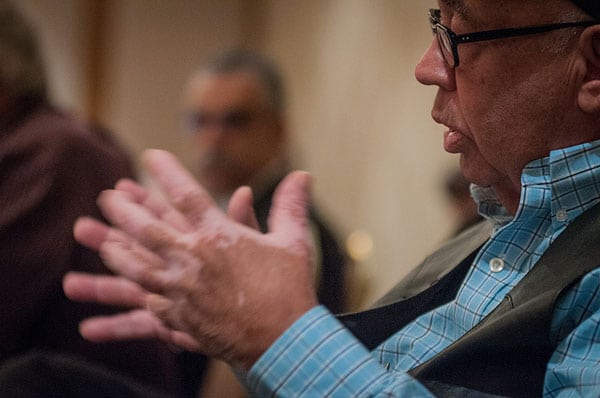
August 13, 2018; Washington Post
This week, in a settlement of a suit brought by American Indian nations against the USDA, the largest-ever US philanthropy serving Native American farmers was established. The Native American Agriculture Fund (NAAF) will distribute the remaining $266 million from the Keepseagle v. Vilsack case, which was initially filed in 1999. “The fund can spend the money at its discretion over the next 20 years under terms filed with a federal judge in Washington,” writes Spencer Hsu in the Washington Post.
Keepseagle v. Vilsack was filed by George and Marilyn Keepseagle of the Standing Rock Sioux nation, along with other claimants, and alleged that the US Department of Agriculture “discriminated against Native Americans in its farm loan and farm loan servicing programs.” In 2010, they settled for $680 million plus $80 million of debt forgiveness, but have since been caught up in the difficulties of distributing the money. Of the 10,000 estimated claimants, only 3,600 qualified, leaving hundreds of millions of dollars unclaimed.
James Giago Davies of Indianz explains,
The courts ruled in 2016 only $77 million should be distributed to the prevailing claimants from the first round of distribution. This amounted to about $18,000 [each] after taxes are paid. Tribes and nonprofits were awarded $38 million, directed to help farmers and ranchers in their communities. The remaining $265 million went into a trust fund to be distributed over a 20-year period by a board of ostensible experts, to Indian farmers and ranchers in need.
[Lead class counsel Joe] Sellers is pleased with the formation of this trust, pointing out “a couple of the named plaintiffs in this case are some of the trustees of the new trust.”
NPQ covered the settlement in 2016 and noted that the idea of creating the NAAF was “deeply unpopular with ranchers, who [argued] that the charitable organizations were not direct victims of discrimination, unlike the individual ranchers and farmers in question, and that the money should be given directly to ranchers.” Keith Mandan and Donivon Craig Tingle filed an appeal that delayed the NAAF’s formation two more years, until now, but it was unanimously denied by the court.
Hsu notes that, “If the judge had not approved creation of the trust, all the leftover money would have been distributed in equal shares to nonprofit groups chosen by class attorneys in the lawsuit, an outcome all sides opposed once it became clear that the sum would be vast.”
Sign up for our free newsletters
Subscribe to NPQ's newsletters to have our top stories delivered directly to your inbox.
By signing up, you agree to our privacy policy and terms of use, and to receive messages from NPQ and our partners.
Claimant Porter Holder of Oklahoma says, “We look forward to forging a new era of partnership with the USDA so that our communities can fully benefit from USDA’s farm loan program.”
However, it’s important to note that, as specified in the case, “The Secretary expressly denies any wrongdoing, as alleged in the Case or otherwise, and does not admit or concede an actual or potential fault, wrongdoing or liability.” Additionally, no criminal charges relating to discrimination have been brought.
As Kari Lydersen of the Washington Post notes, “The USDA farm loan program is meant as a source of financing of last resort for small farmers and ranchers, including minorities [sic], who have been unable to secure private funds.” In other words, Native American farmers, having been pushed onto small parcels of undesirable land, applied for loans. Those loans were hard to secure because the US government holds the farmers’ land in trust, meaning it can’t be used as collateral. Then, the program created to solve this problem denied the loans based on the conditions that created it in the first place—and no wrongdoing has been admitted.
On top of that, says Hsu,
Experts blamed the inability to distribute money under the initial agreement in part on the Agriculture Department’s failure to keep records of applicants who previously were denied loans and were eligible for a settlement, a history of skepticism in Indian country about federal promises, and the difficulty in reaching poor and isolated Native Americans in remote areas to identify wronged parties and make them aware of the settlement.
Wonder where that skepticism came from.
In June, the USDA’s Council for Native American Farming and Ranching held its final meeting, where they said, “The Secretary of Agriculture is committed to improving communications and working with Indian Country, not because we have to, but because it is the right thing to do…the Secretary wants to continue this Council in some form.”
Trust Chairwoman Elsie Meeks, a rancher with the Oglala Sioux nation in South Dakota and the first Native American to serve on the US Commission on Civil Rights, notes that, “All of us having served on foundation boards understand how to go about developing a strategy. We have a long way to go, but this is a national fund…with some 560 Native American tribes, this could be a drop in a bucket—which is why we have to be really smart about how we use this money.”—Erin Rubin













